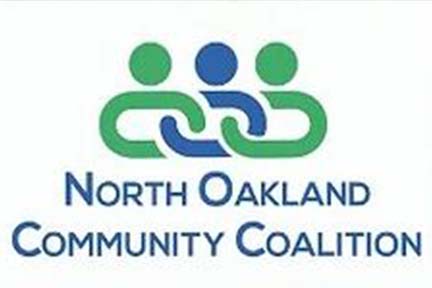|
Press Release
FOR IMMEDIATE RELEASE: Feb. 8, 2024
CONTACT: Lynn Sutfin, 517-241-2112, [email protected]
New gun safety laws to protect families go into effect February 13
Requires secure storage of firearms to prevent access by minors, enacts penalties
LANSING, Mich. – To help protect Michigan families – particularly children – from the tragedies of gun violence and unintentional firearms injuries, a law requiring secure storage of firearms goes into effect starting Tuesday, Feb. 13.
The new secure storage law, Public Act 17 of 2023, requires individuals to keep unattended weapons unloaded and locked with a locking device or stored in a locked box or container if it is reasonably known that a minor is likely to be present on the premises.
“We want to make sure Michigan families are aware of the new law designed to prevent unintentional deaths involving guns and how to comply with the new requirements,” said Elizabeth Hertel, MDHHS director. “Data shows firearms involved in unintentional firearm injury deaths among children and adolescents were often stored both loaded and unlocked, and children were most often fatally injured when the shooter was playing with or showing the firearm to others.”
If an individual fails to store a firearm as required and a minor obtains the firearm and any of the following occur, they are guilty of a crime under Public Act 16 of 2023, as follows:
- If the minor possesses or exhibits the firearm in a public place or possesses or exhibits the firearm in the presence of another person in a careless, reckless or threatening manner: a misdemeanor punishable by imprisonment for up to 93 days or a fine of up to $500, or both.
- If the minor discharges the firearm and injures themselves or another individual: a felony punishable by imprisonment for up to five years or a fine of up to $5,000, or both.
- If the minor discharges the firearm and inflicts serious impairment of a body function on themselves or another individual: a felony punishable by imprisonment for up to 10 years or a fine of up to $7,500, or both.
- If the minor discharges the firearm and inflicts death on themselves or another individual: a felony punishable by imprisonment for up to 15 years or a fine of up to $10,000, or both.
These penalties could be imposed in addition to charges for other criminal offenses arising from an incident.
“As the top law enforcement officer in the state of Michigan, as a former Wayne County prosecutor and as a mother, I too am exasperated and deeply saddened that thousands of Michigan residents fall victim each year to the scourge of senseless, preventable gun violence in our state,” said Attorney General Dana Nessel. “I am proud that our state has finally implemented new commonsense gun safety measures and am committed to using the resources of my office to educate residents about the new measures and support our communities through implementation.”
According to the Centers for Disease Control and Prevention, two-thirds (67%) of unintentional firearm injury deaths among children and adolescents occurred when the shooter was playing with the firearm or showing the firearm to others. Overall, firearms used in unintentional injury deaths were often stored unlocked (76%) and most of these unlocked firearms were also loaded (91%). Unlocked firearms were most commonly accessed from a nightstand or other sleeping areas (30%).
In addition, firearms are involved in more than half of suicide deaths in Michigan. Secure storage can also serve as a suicide prevention strategy.
In 2020, firearms became the number one cause of death for children in the United States and Michigan, surpassing motor vehicle deaths and those caused by other injuries.
“Firearm violence is preventable, and a leading cause of death in our young people,” said Dr. Bagdasarian, chief medical executive. “In Michigan, and across the United States, childhood deaths from firearms now exceed deaths from pediatric cancers and drownings. We have had major success over the past decades in reducing pediatric deaths from motor vehicle accidents, and we need to harness the same public health approach – including education and community outreach – to help keep Michigan children and families safe from firearm violence.”
What else the state is doing
To ensure federally licensed firearms dealers communicate the new requirements to their customers, MDHHS is working with the state Attorney General’s Office to provide dealers with safety information on the use and storage of firearms, requirements and penalties of the new laws and lethal means counseling literature.
To help defray the cost of purchasing firearm safety devices, additional legislation made these devices exempt from sales and use taxes through Dec. 24, 2024. Free gun safety kits can also be obtained through Project ChildSafe law enforcement partners across the state. MDHHS is also working with the Michigan State Police to make gun locks available; additional details of this partnership will be announced soon.
“The research underscores the crucial role safe firearm storage plays in safeguarding our children, families and communities,” said Holly Alway, Safe Kids Michigan president and Safe Kids West Michigan Coalition coordinator. “Michigan’s safe storage laws will help prevent tragic accidents like unintentional injuries, suicides and homicides. These laws prioritize safety and responsibility in every Michigan household and are a critical piece of a comprehensive and evidence-based approach to reducing firearm-related injuries and fatalities.”
“There are many options for parents and caregivers to obtain what they need to store their firearms safely,” said Pam Ford, coordinator, Safe Kids Greater South Haven, led by Bronson Healthcare. “In 2023, Bronson Healthcare helped raise awareness by launching a campaign for National Safety Month, making gun safety locks available at Bronson pediatrician offices and provided free cable locks at community events. Gun owners can also get free cable locks at local police departments – with no questions asked. The goal is to assist gun owners in southwest Michigan safely store their firearms.”
Additional gun safety laws going into effect protect Michigan communities by closing loopholes in the law and expanding universal background checks to all firearms as well as legislation that allows judges to order law enforcement to temporarily confiscate firearms from individuals they deem a risk to themselves or others.
For more information, visit the MDHHS Firearm Safety website. |












